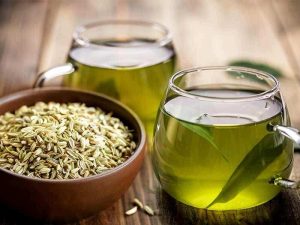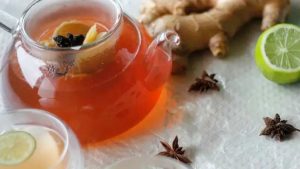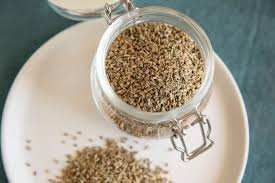Made from the dried seeds of the Pimpinella anisum plant, anise seed tea is a time honored herbal infusion prized for taste and medicinal effects. From the Mediterranean to the Middle East and South Asia, this tea has long been a favorite in many civilizations because of its naturally sweet, licorice-like taste. Originally employed in ancient Greek, Roman, and Ayurvedic medicine, anise seed tea has become known as a potent cure for common conditions-especially those pertaining to digestion, breathing, and hormonal balance.
Anise seed tea is a calming choice at any time of day since it is naturally caffeine-free unlike many teas. This scented drink provides a mild, all-natural remedy whether your goals are to improve hormonal health, reduce bloating following a large meal, quiet a chronic cough, or just relax before bed. This all-inclusive book will cover all you need to know about anise seed tea-its fascinating history, scientifically supported health advantages, brewing techniques, possible side effects, and more.
Anise Seed Tea: definition
Made from steeping crushed or whole anise seeds in hot water, anise seed tea is a herbal infusion. Originating in Mediterranean and Southwest Asia, the seeds are renowned for their unique liquorice scent. Though both are used in herbal teas and have similar tastes, anise seed should not be mistaken with star anise.
Anise Seed nutritional profile
Anise seeds abound in:
- Iron.
- Calcium.
- Magnesium.
- B vitamins.
- Anethole, an essential oil.
- Antioxidants.
A potent natural cure since many of the health advantages of tea depend on these substances.
Cultural and Historical Relevance of Anise Seed Tea
Anise has been consumed since ancient times, starting with the Romans, Greeks, and Egyptians. The seeds were valued for medical as well as culinary applications. Two eminent practitioners of ancient medicine, Hippocrates and Dioscorides, advised anise for stomach problems and coughing. Anise was routinely used with other herbs in ancient Chinese and Ayurvedic medicine to balance the body’s internal systems. Still a prominent component in many traditional teas and herbal combinations worldwide today is this element.
- Traditional uses include.
- European herbal liqueurs like absinthe and ouzo.
- Middle Eastern arak and Indian mukhwas, mouth fresheners.
- Digestive teas post-meal in many Mediterranean homes.
Anise Seed Tea’s Health Benefits:
Boosts digestion
This tea is being used for support of digestive health among other purposes. It can:
- Ease gas and bloating.
- Help with indigestion.
- Boost appetite.
- Minish nausea.
Turns around cold and coughing symptoms:
Expectorant qualities of anise seeds aid to facilitate breathing and clear phlegm.
- Reduces coughing.
- Provides a natural decongestant.
- Helves sore throats.
Hormonal Balance
Anethole, the active compound in anise, mimics estrogen in the body. This may:
- Ease menstrual discomfort.
- Support lactation in nursing mothers.
- Help manage menopausal symptoms.
Encourages Improved Sleeping
Considered to have modest calming effects and free of caffeine, Drinking this tea before bed could help to:
- Lower anxiety
- Promote peaceful sleep.
Combines Infection and Inflammation
Anise seed tea’s antibacterial and antioxidant properties could help fight bacterial and fungal infections, therefore strengthening immunity and lowering inflammation.
Making Anise Seed Tea: Techniques
Making anise seed tea at home calls just a few ingredients and is easy.
- One to two teaspoons of crushed anise seeds.
- One cup of boiling water.
- Optional: mint, lemon, or honey.
Directions:
- To liberate the oils, crush the seeds just gently.
- Pour boiling water from a teapot or mug over the seeds.
- Steep 5 to 10 minutes.
- Strain then add your desired flavor or sweetener.
- Present heat and savors.
When and how often should one to drink it?
- Usually regarded safe are 1 to 2 cups daily.
- Best drunk either before bed or after meals.
- See a healthcare professional whether you use drugs, are pregnant or nursing.
Possible Side Effects of Anise Seed Tea
- Allergies, particularly in relation to celery, fennel, or parsley.
- Hormonal consequences from phytoestrogens.
- Medication interactions including hormone treatments or anticoagulants.
See your doctor always if you have any health issues or worries.
Anise Seed Tea Comparatively to Star Anise Tea:
|
Feature |
Anise Seed Tea |
Star Anise Tea |
|
Origin |
Mediterranean |
China and Vietnam |
|
Flavor |
Sweet, mild licorice |
Stronger licorice |
|
Plant Family |
Apiaceae |
Illiciaceae |
|
Common Use |
Digestive aid, sleep |
Cold remedies, flu support |
|
Appearance |
Small oval seeds |
Star-shaped spice |
Tips for Buying and Storing Anise Seeds
- Buy organic seeds from reputable sources.
- Store in a cool, dry place in an airtight container.
- Freshly crushed seeds yield the most potent flavor and benefits.
Where to Buy Anise Seeds
You can find anise seeds at:
- Health food stores.
- Online retailers like Amazon or iHerb.
- Spice sections of well-stocked supermarkets.
When buying online, check reviews and opt for non-GMO, organic-certified brands to ensure purity and potency.
DIY Variations and Blends
To enhance the flavor and benefits, try combining anise seed with:
- Ginger – for extra digestive support.
- Chamomile – for better sleep.
- Fennel – for a bolder licorice flavor.
- Peppermint – for a refreshing twist.
Anise seed tea is a delicious, aromatic, and medicinal beverage that offers a wide range of health benefits-making it a valuable addition to your daily wellness routine. From soothing digestive discomfort and alleviating cold symptoms to supporting hormonal balance and enhancing sleep quality, this herbal tea brings both comfort and function to your cup. Its naturally sweet, licorice-like flavor makes it enjoyable on its own or as a base for creative herbal blends.
With minimal side effects, zero caffeine, and a simple preparation process, anise seed tea is ideal for people seeking natural, plant-based remedies. It’s especially helpful for those looking to cut back on caffeine or supplement their health regime with something time tested and gentle. By incorporating anise seed tea into your lifestyle whether as a calming evening ritual or a post meal digestive aid-you can benefit from centuries of traditional wisdom backed by modern science. Sip mindfully, and let this ancient brew enhance your everyday well-being-one cup at a time.
Frequently Asked Questions
Is anise seed tea safe during pregnancy?
In small amounts, yes. But always consult your doctor, as anise has estrogen-like effects.
Can I drink anise seed tea every day?
Yes, 1–2 cups daily is generally considered safe for most people.
Does anise seed tea contain caffeine?
No, it is completely caffeine-free.






